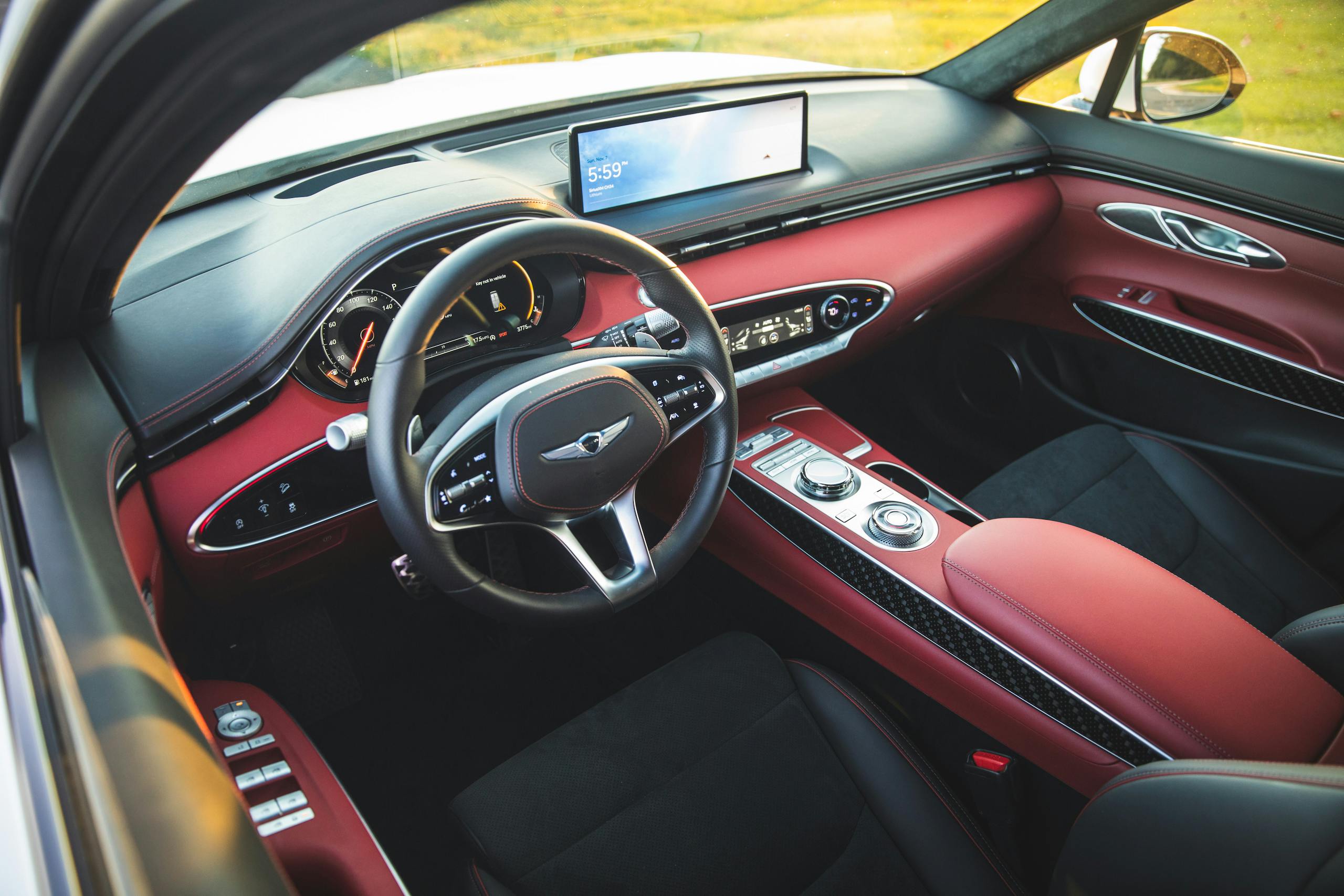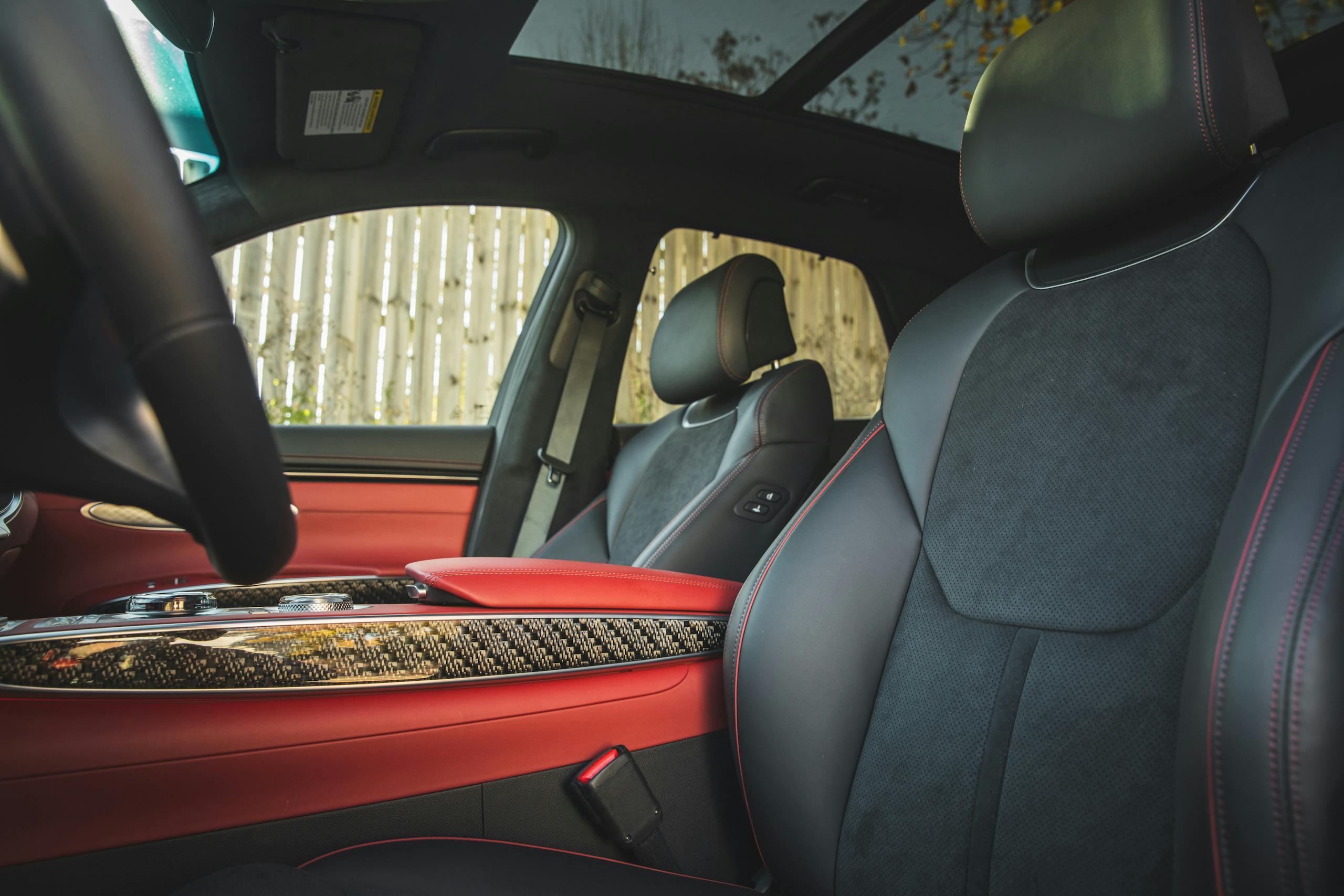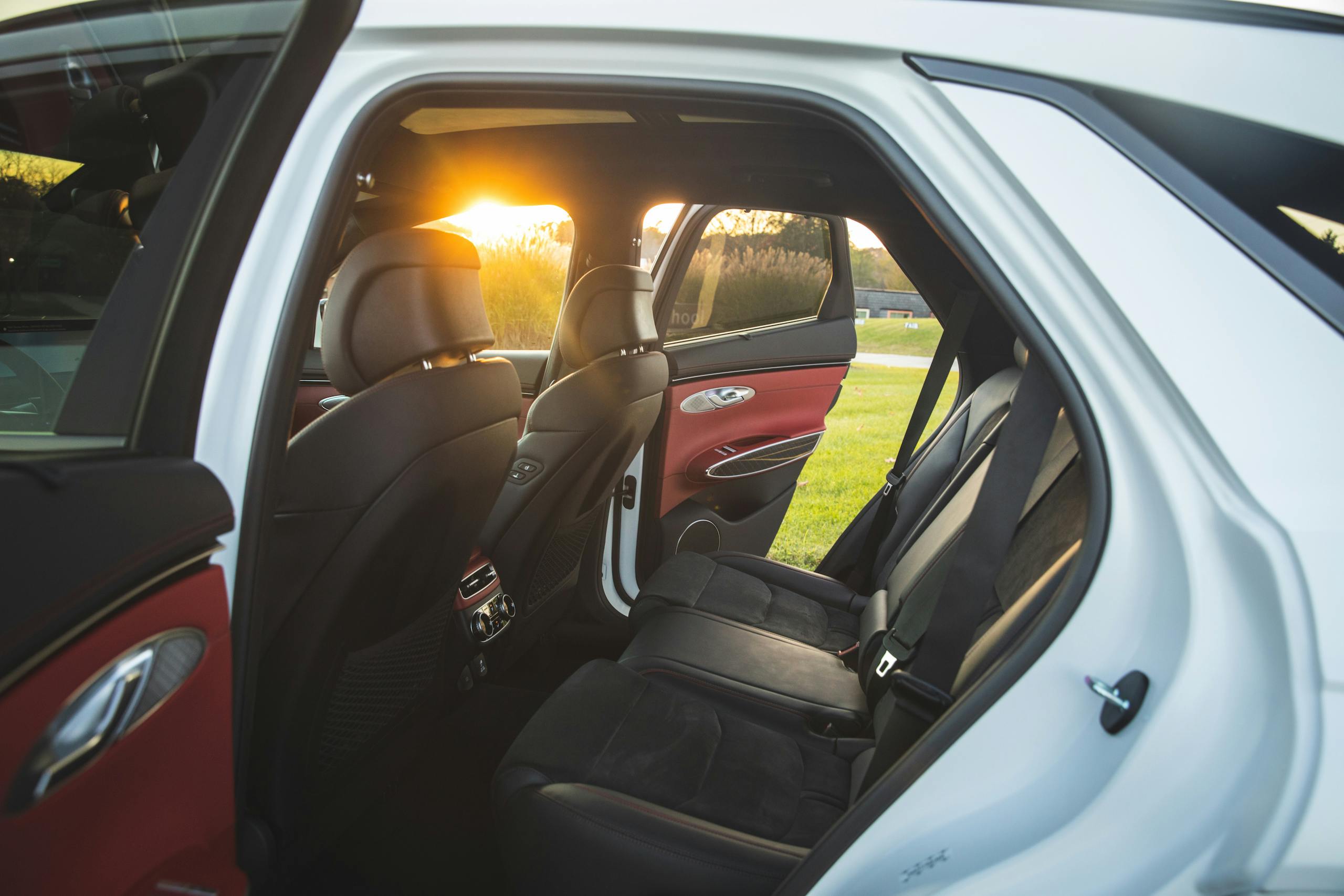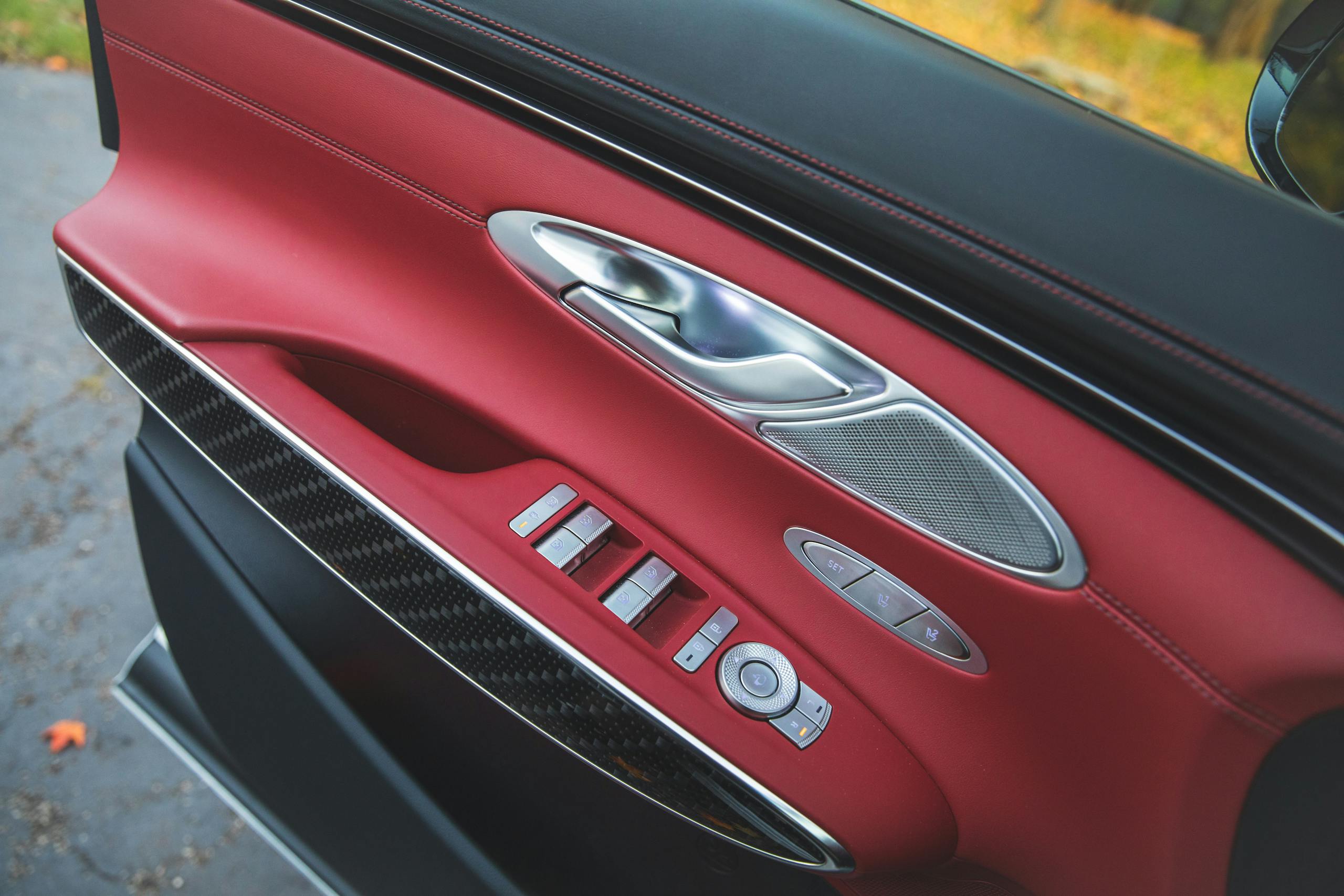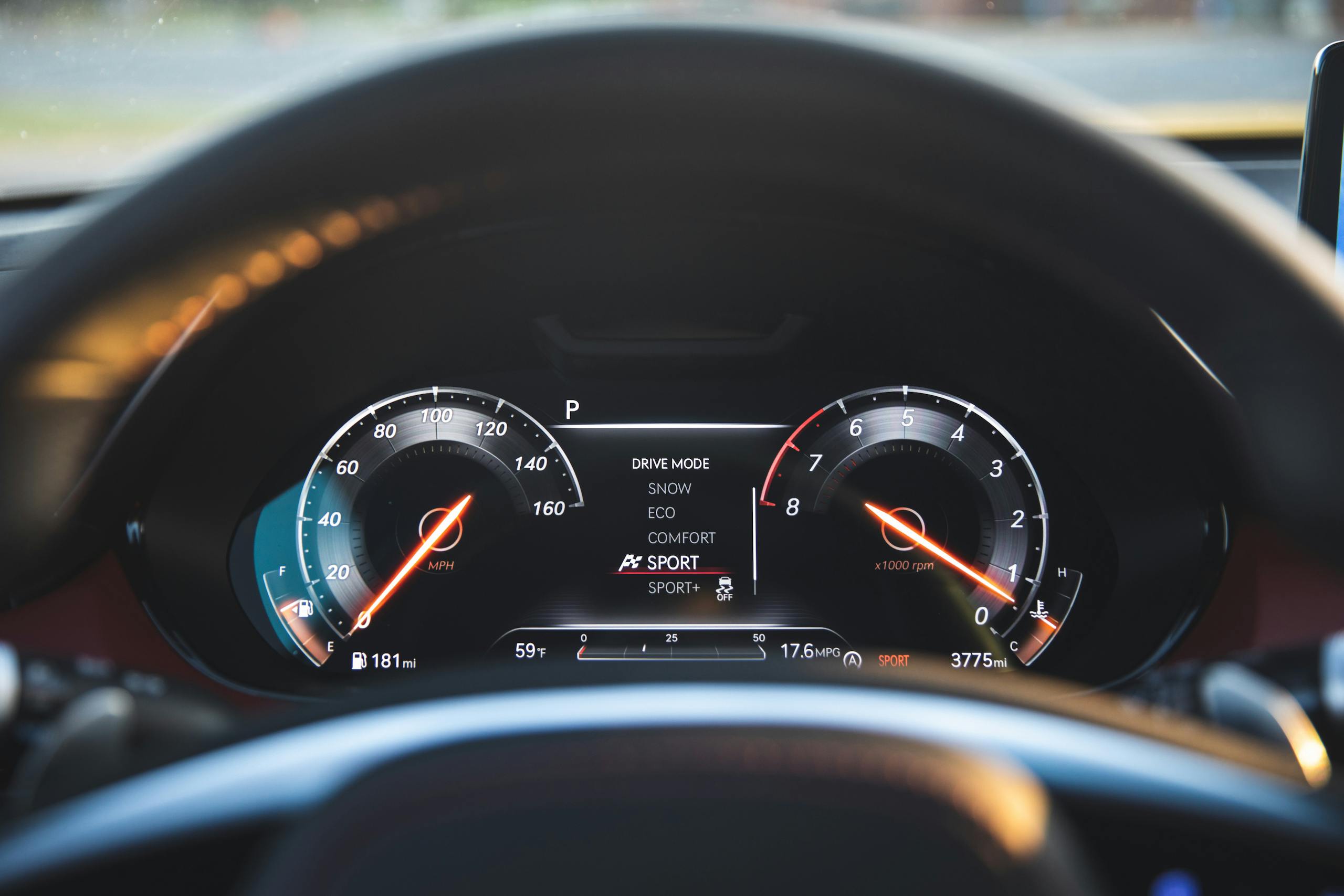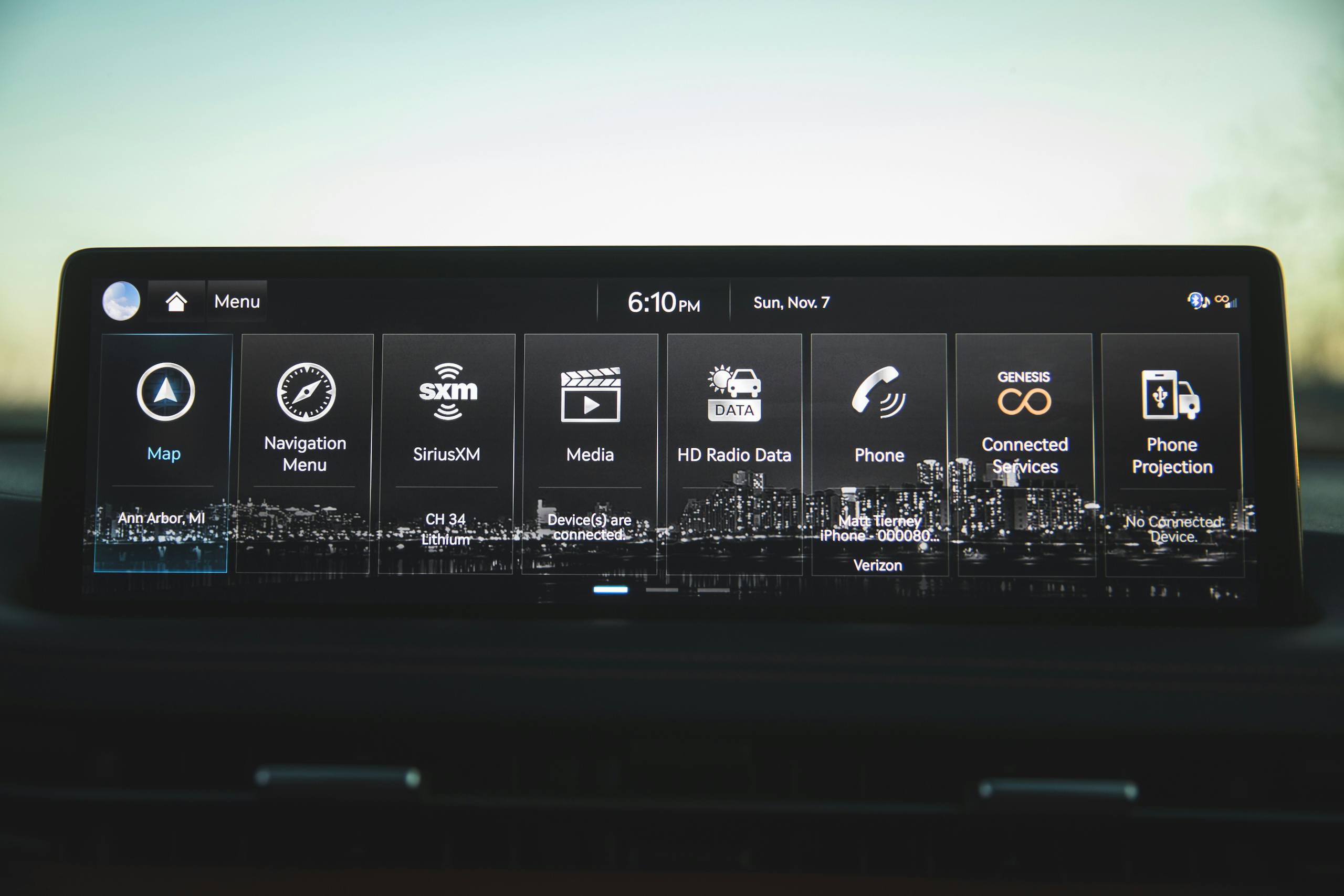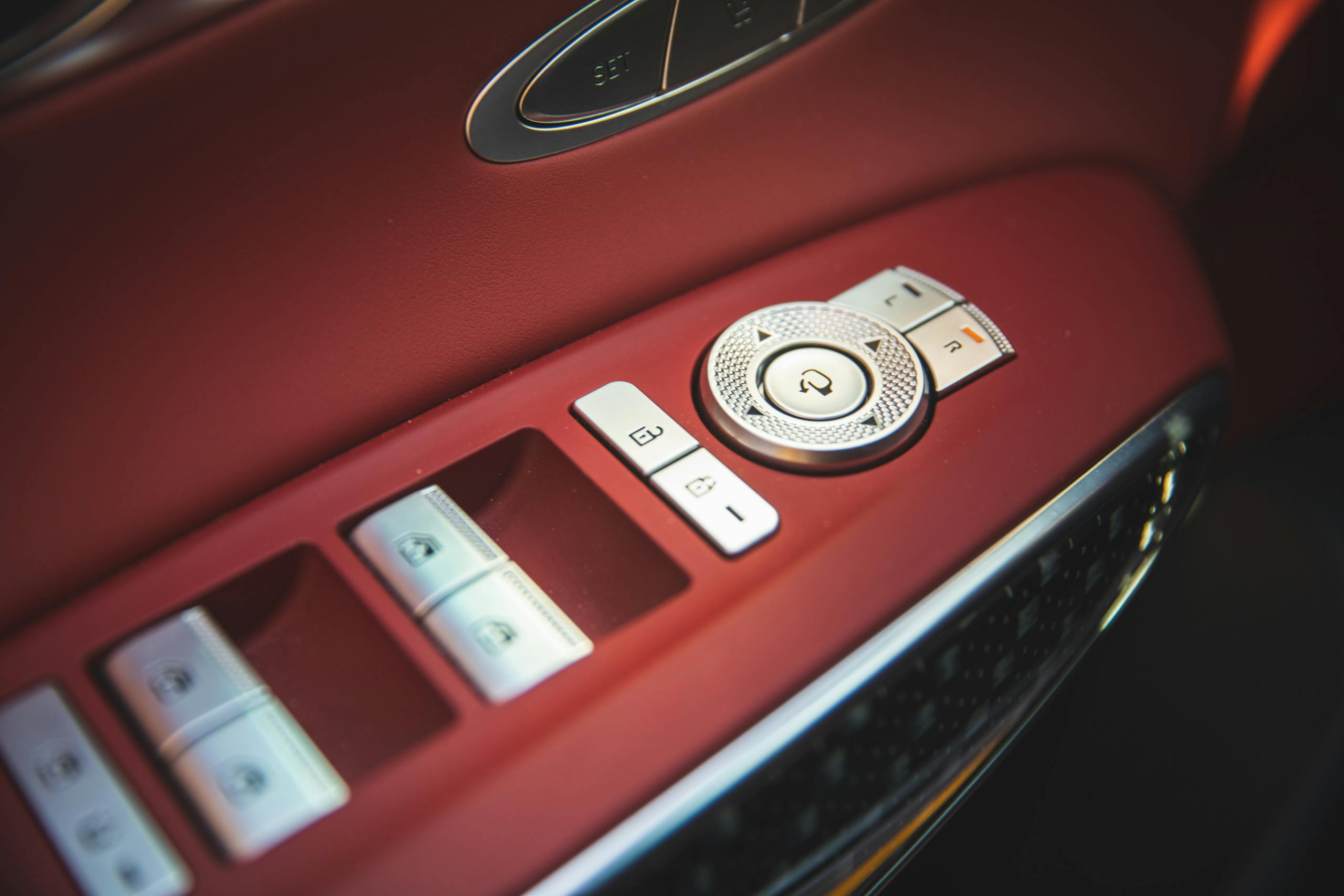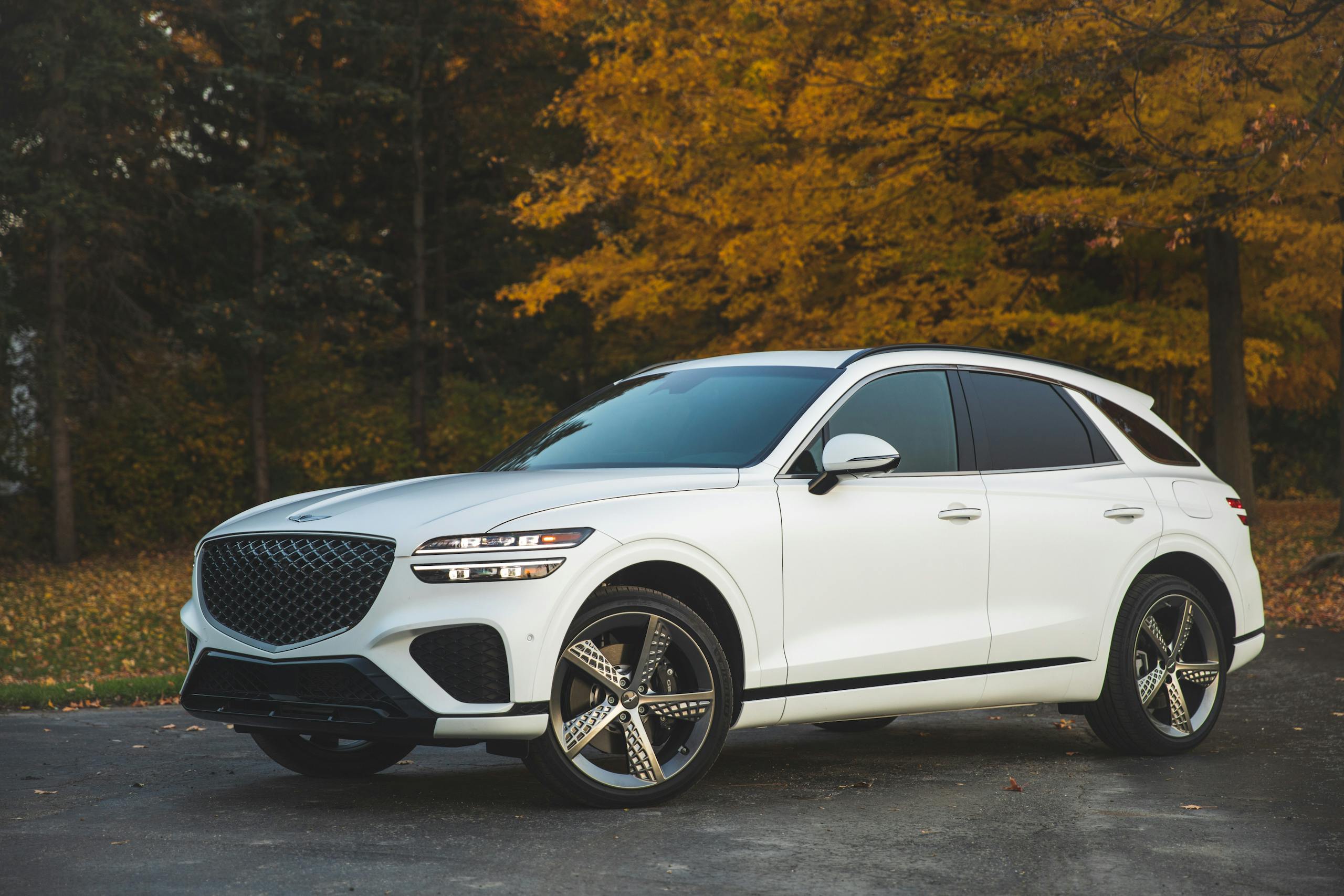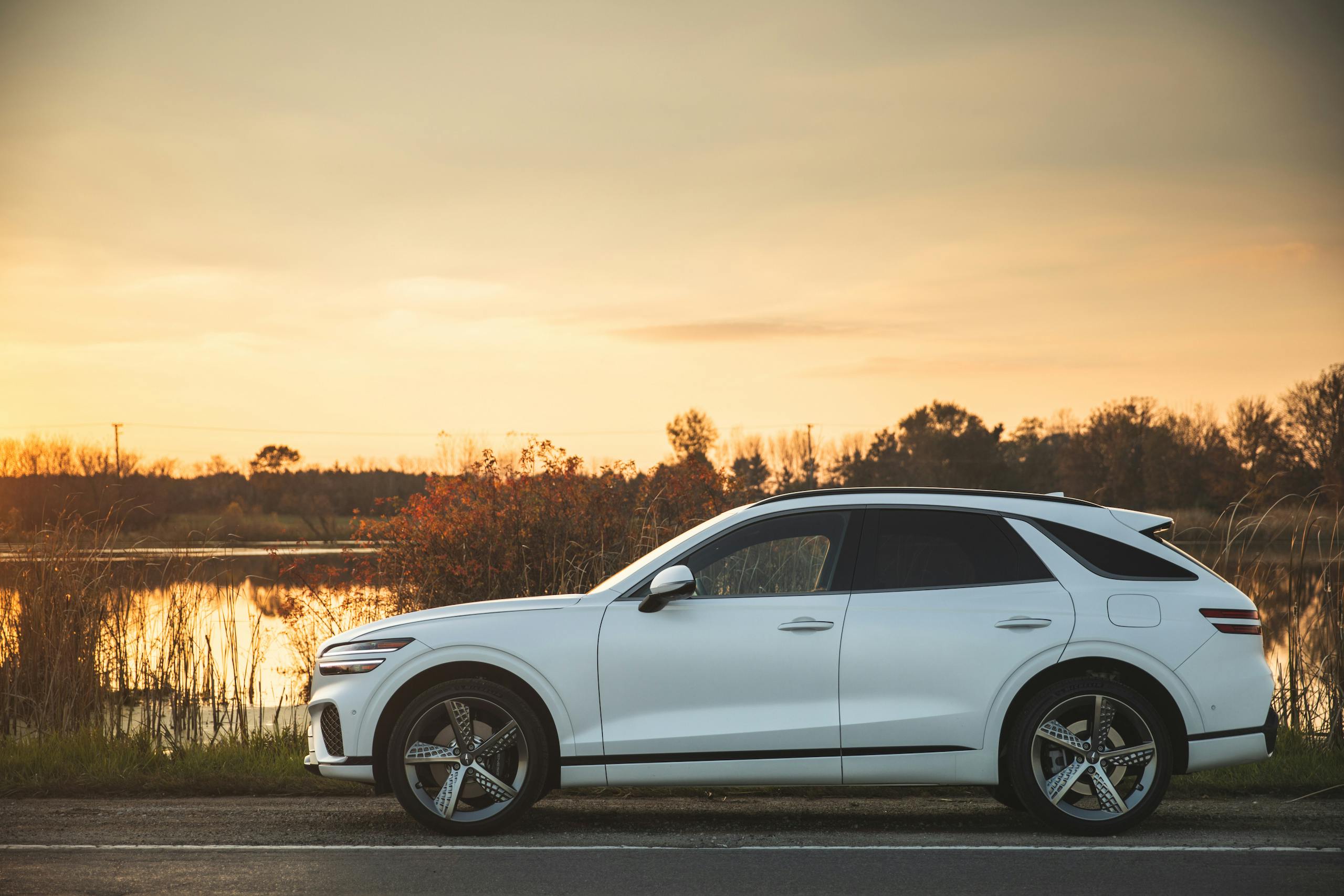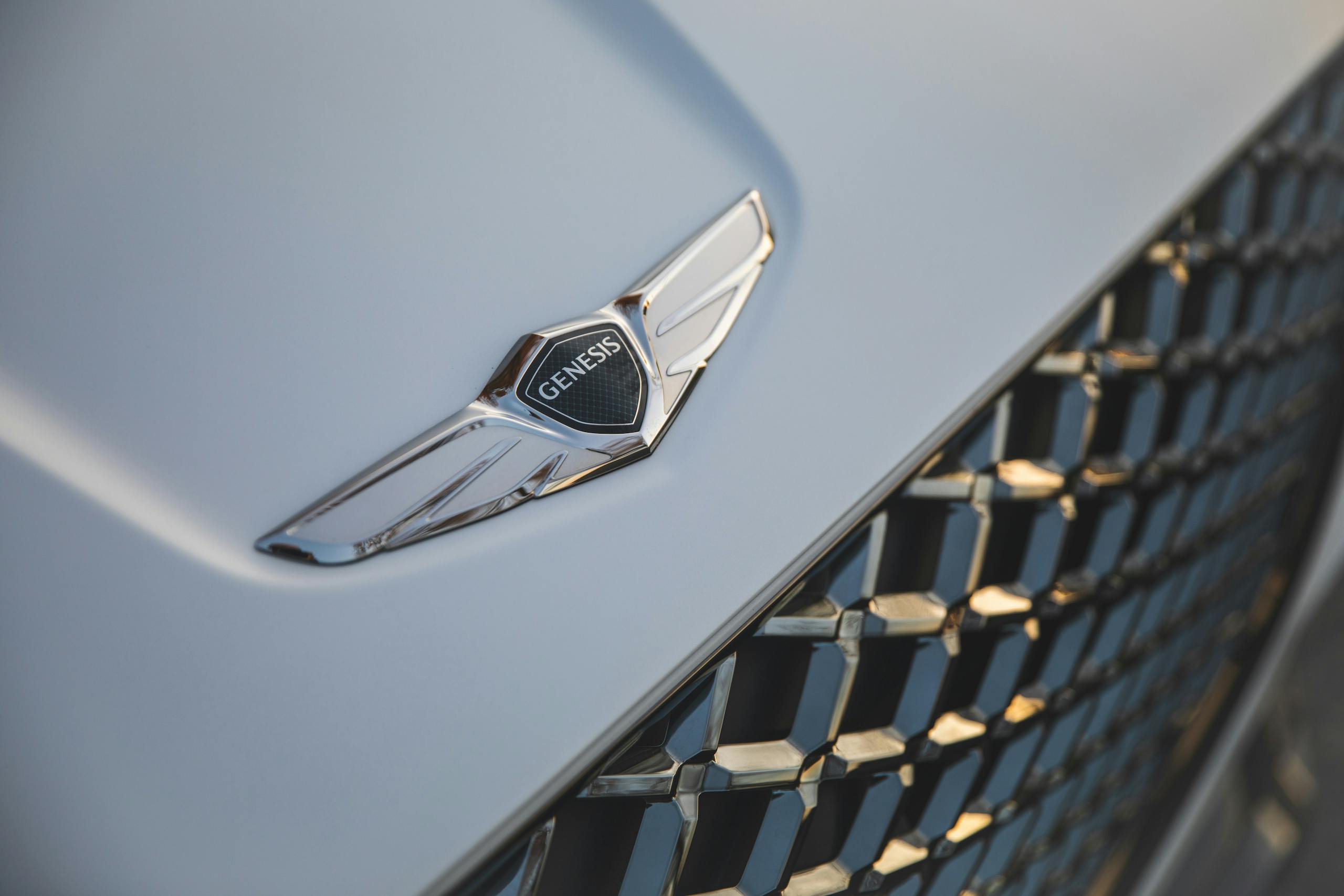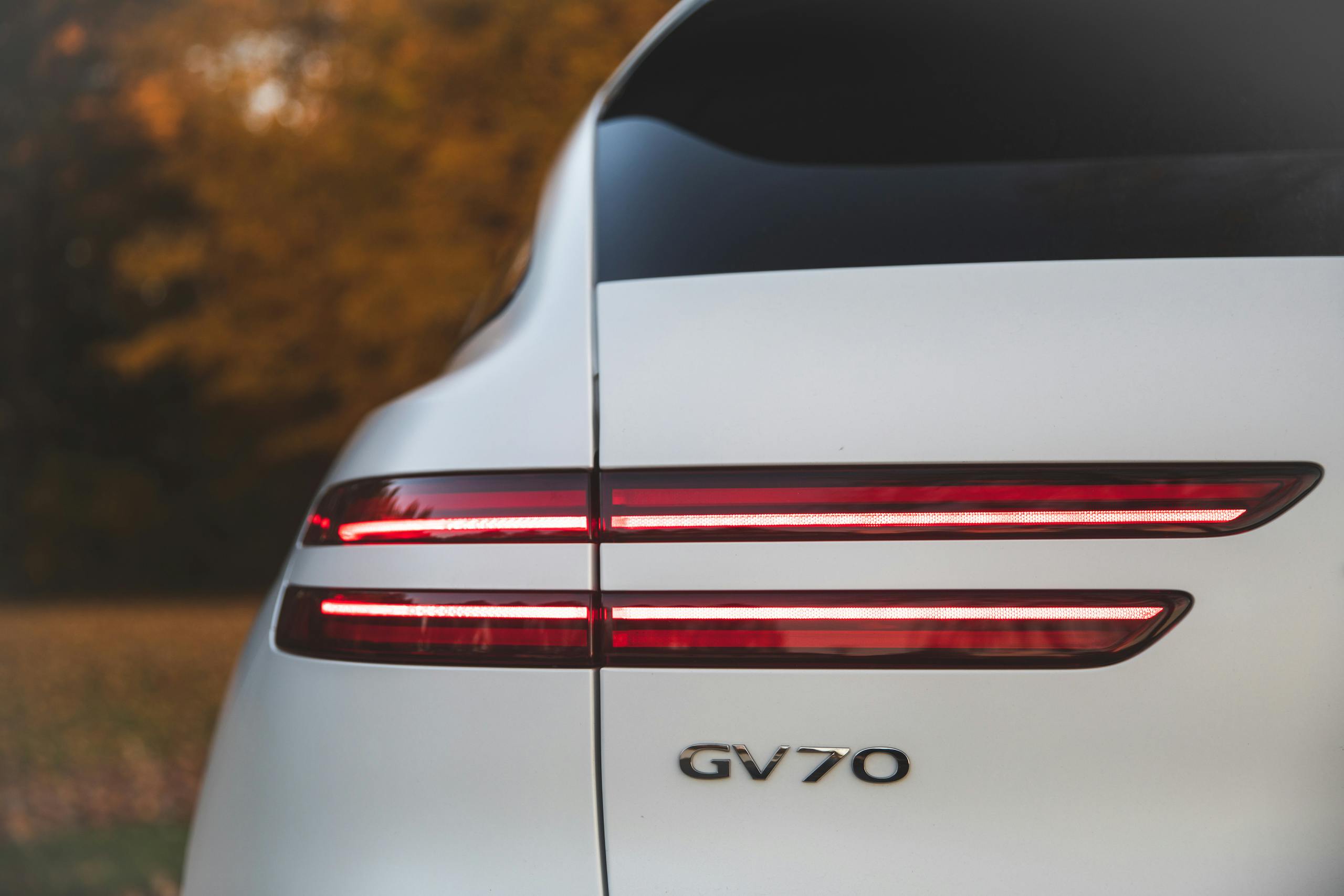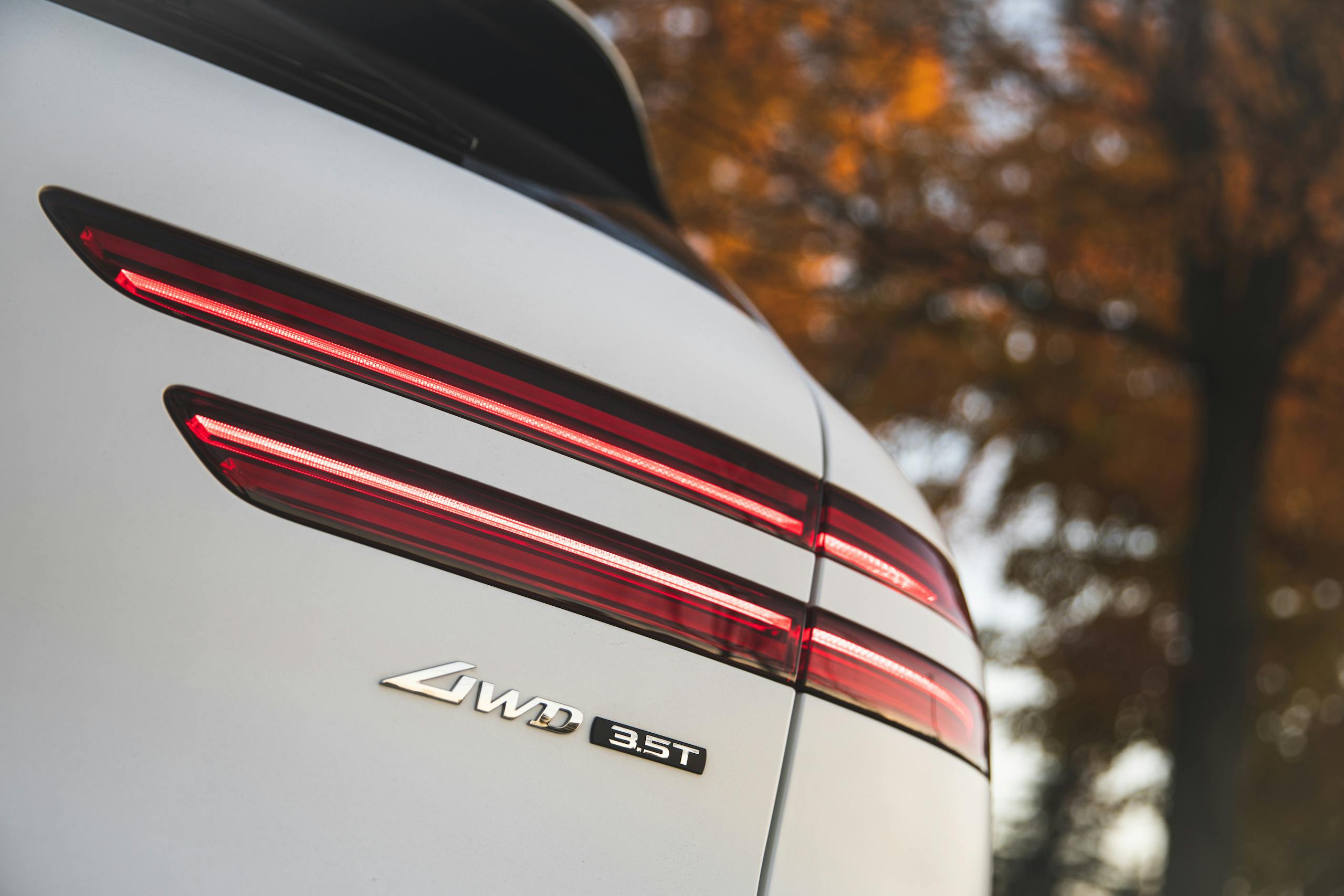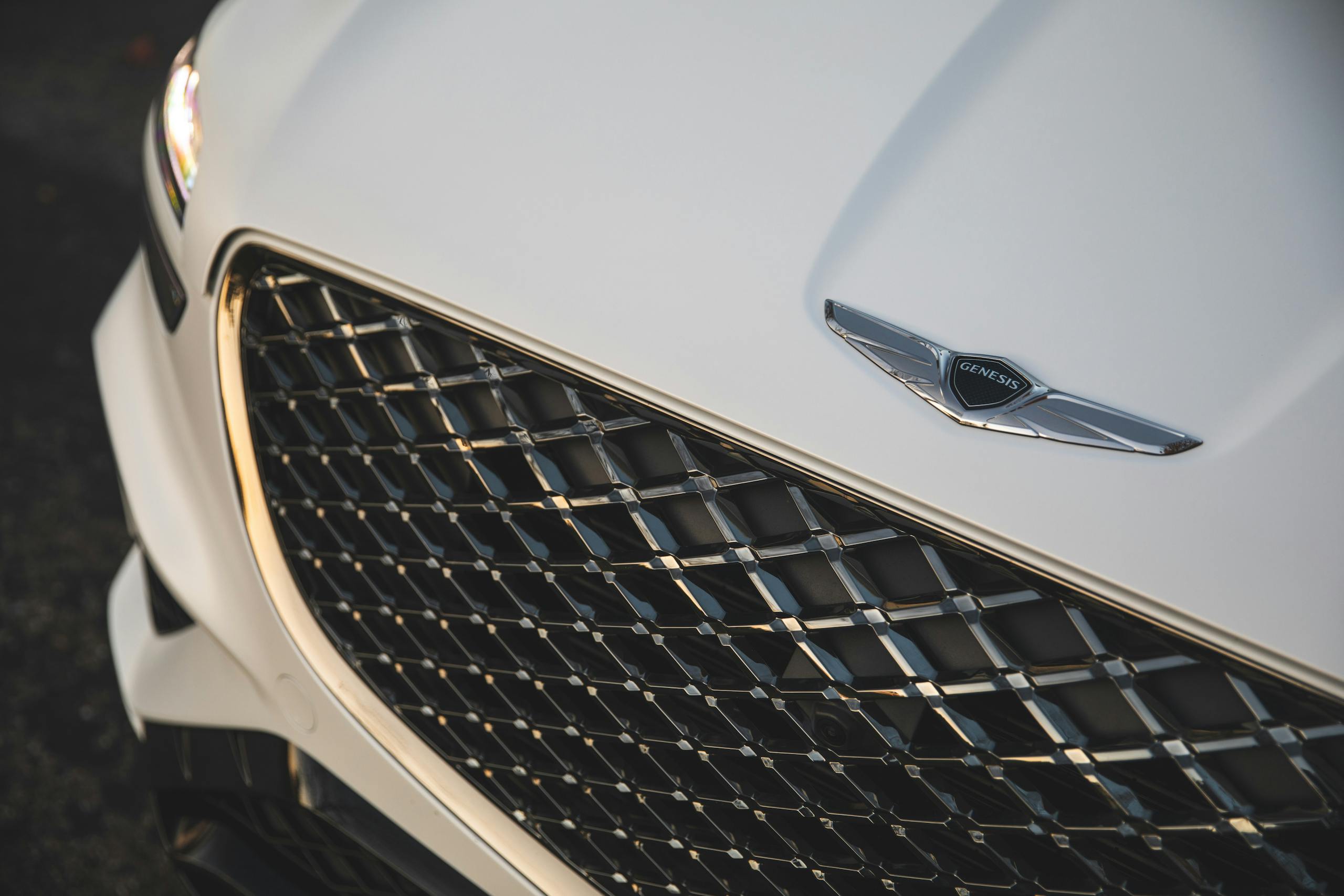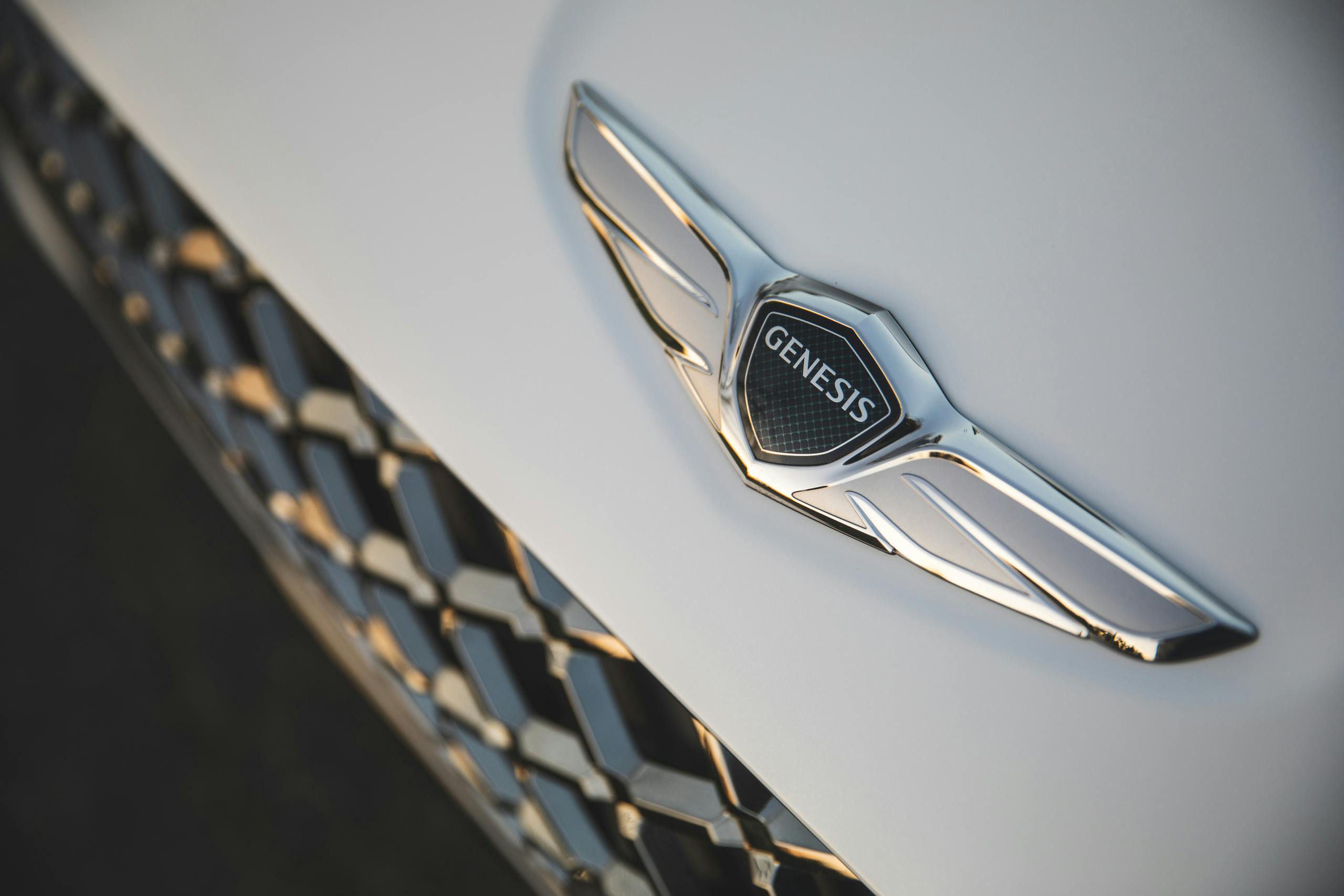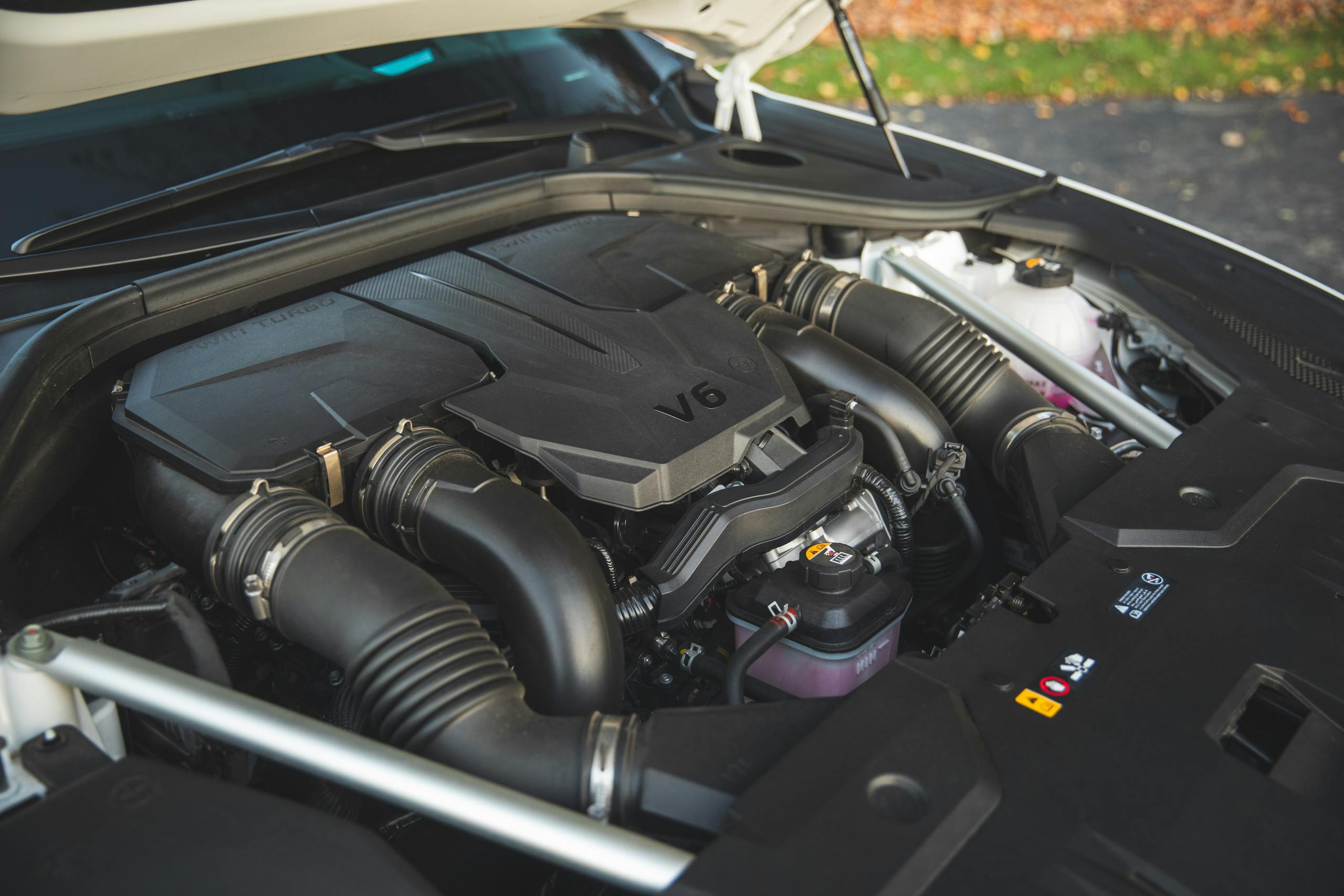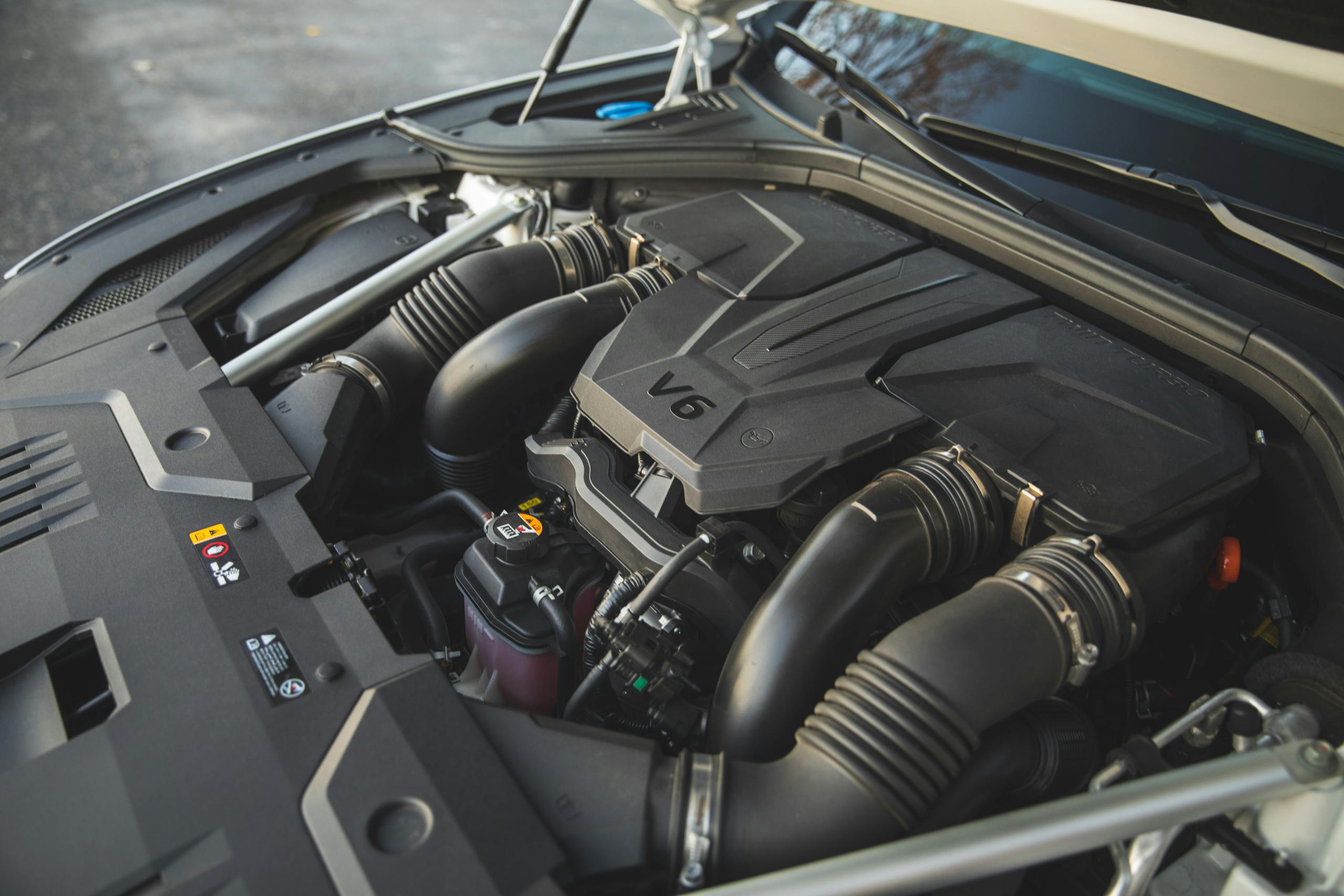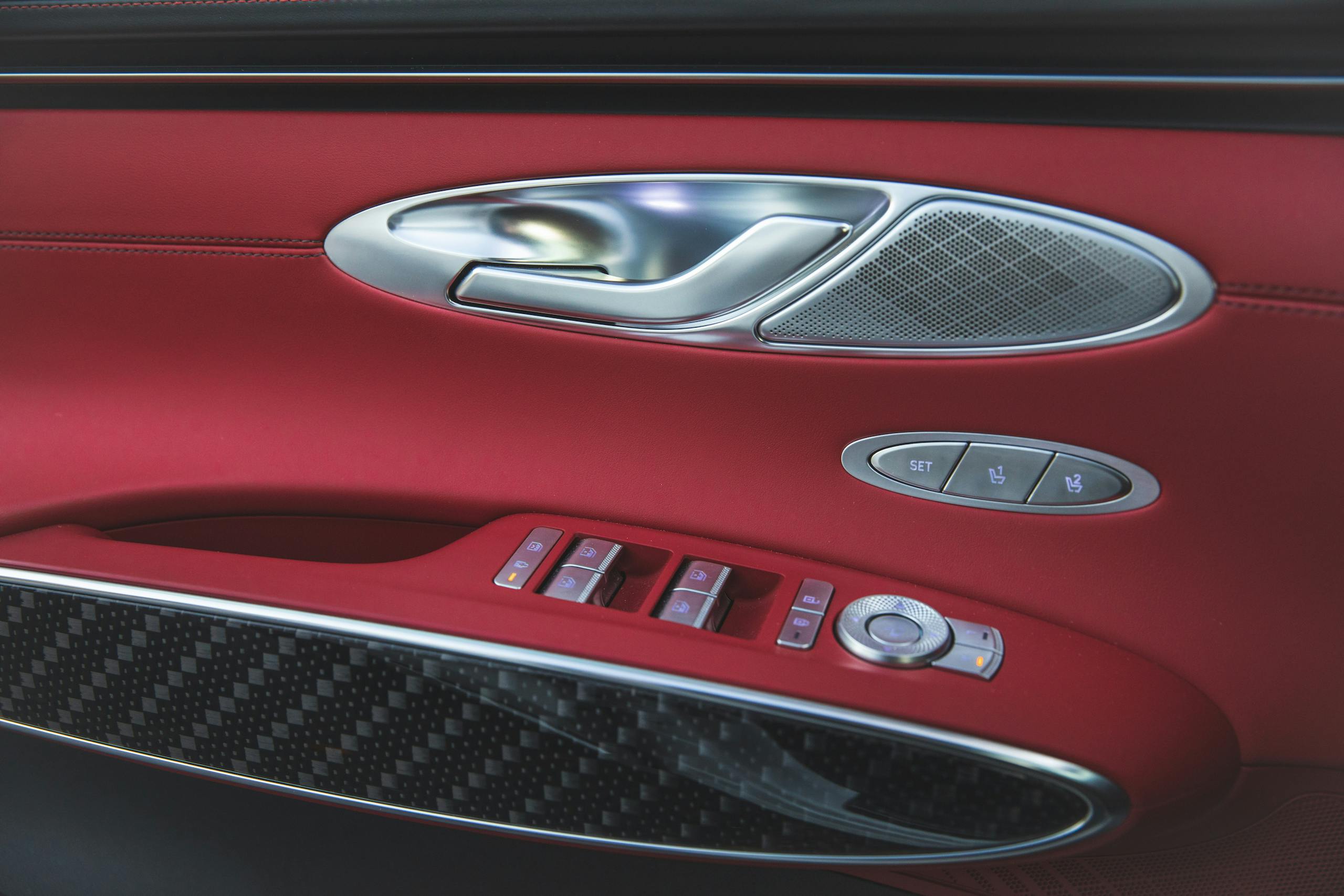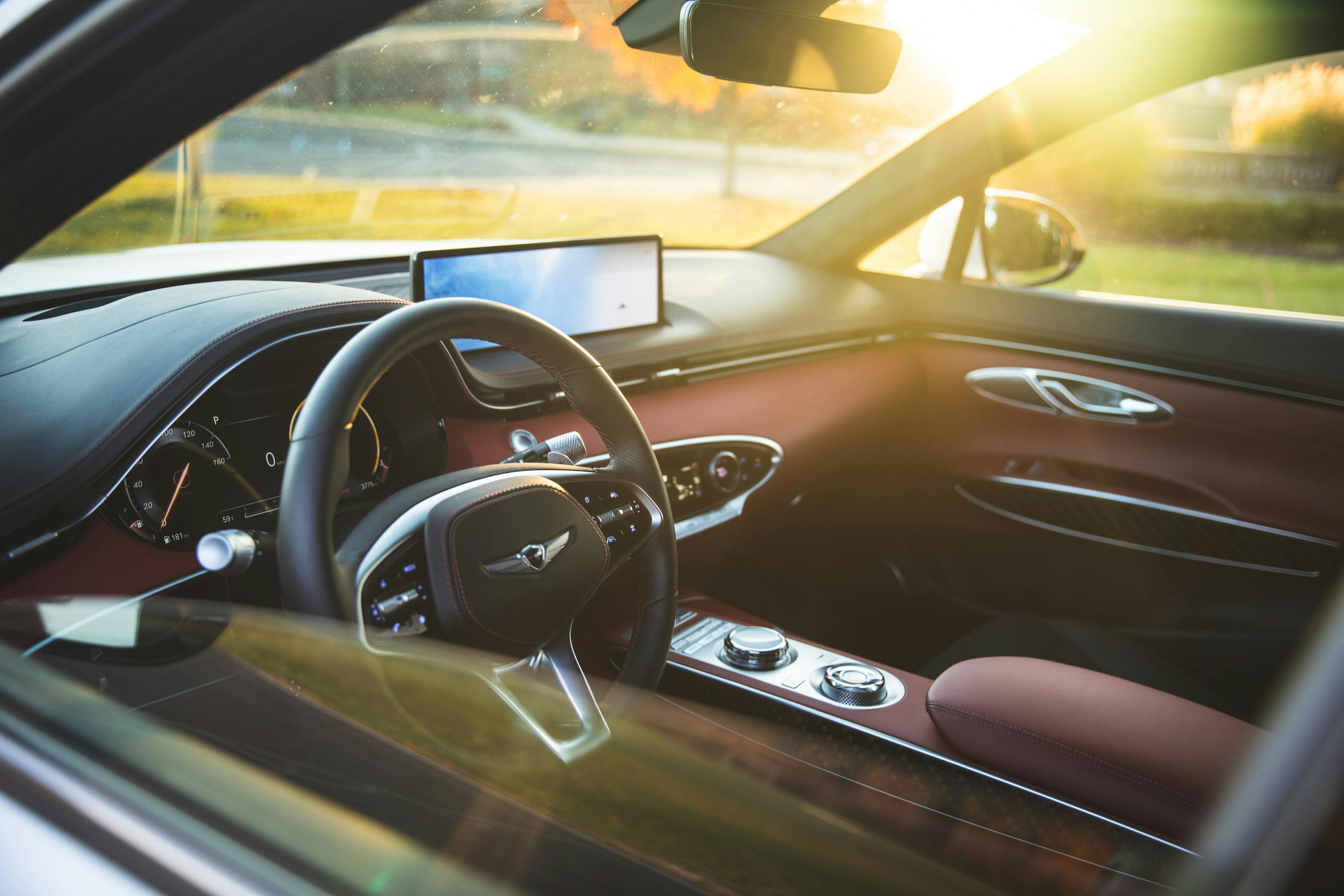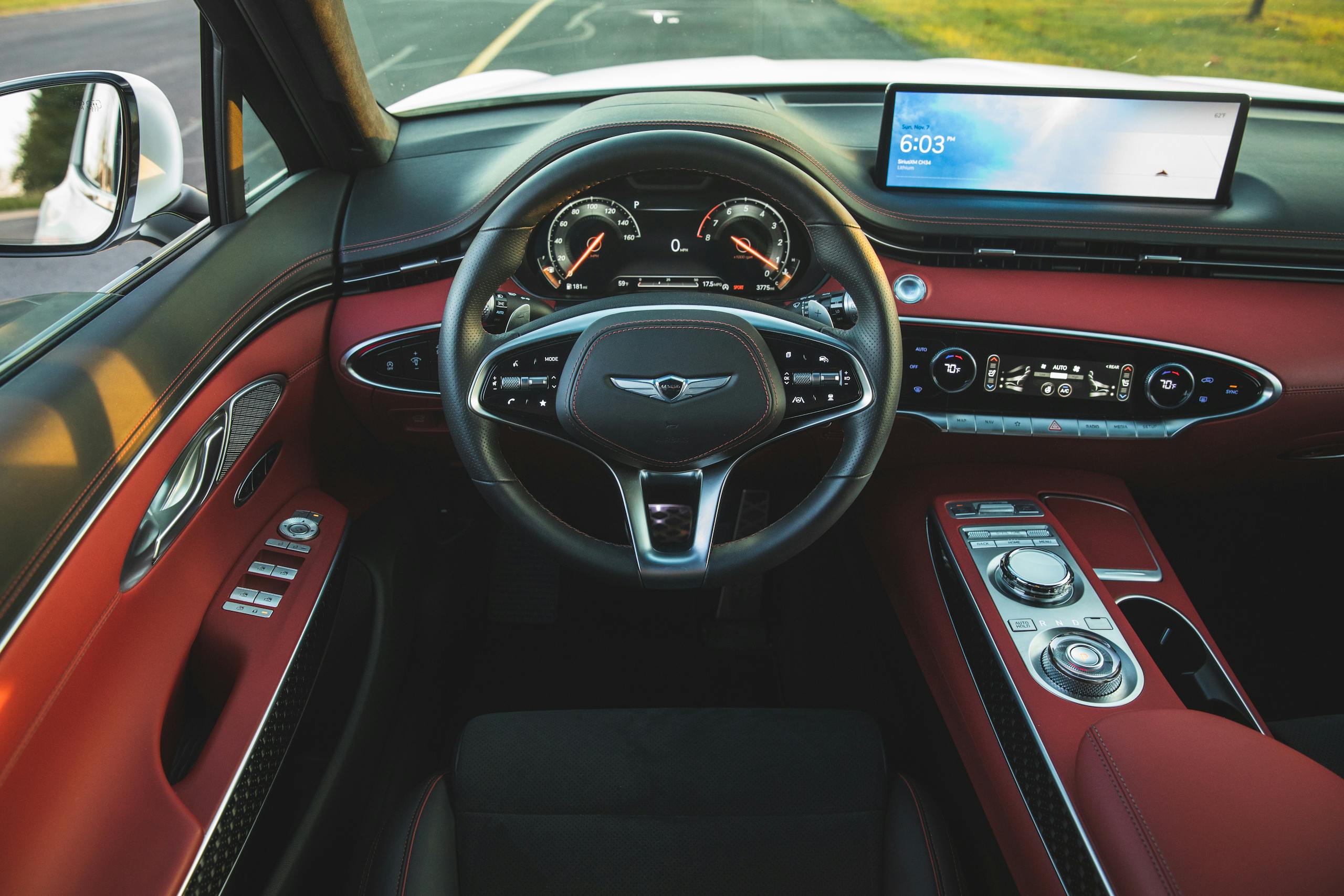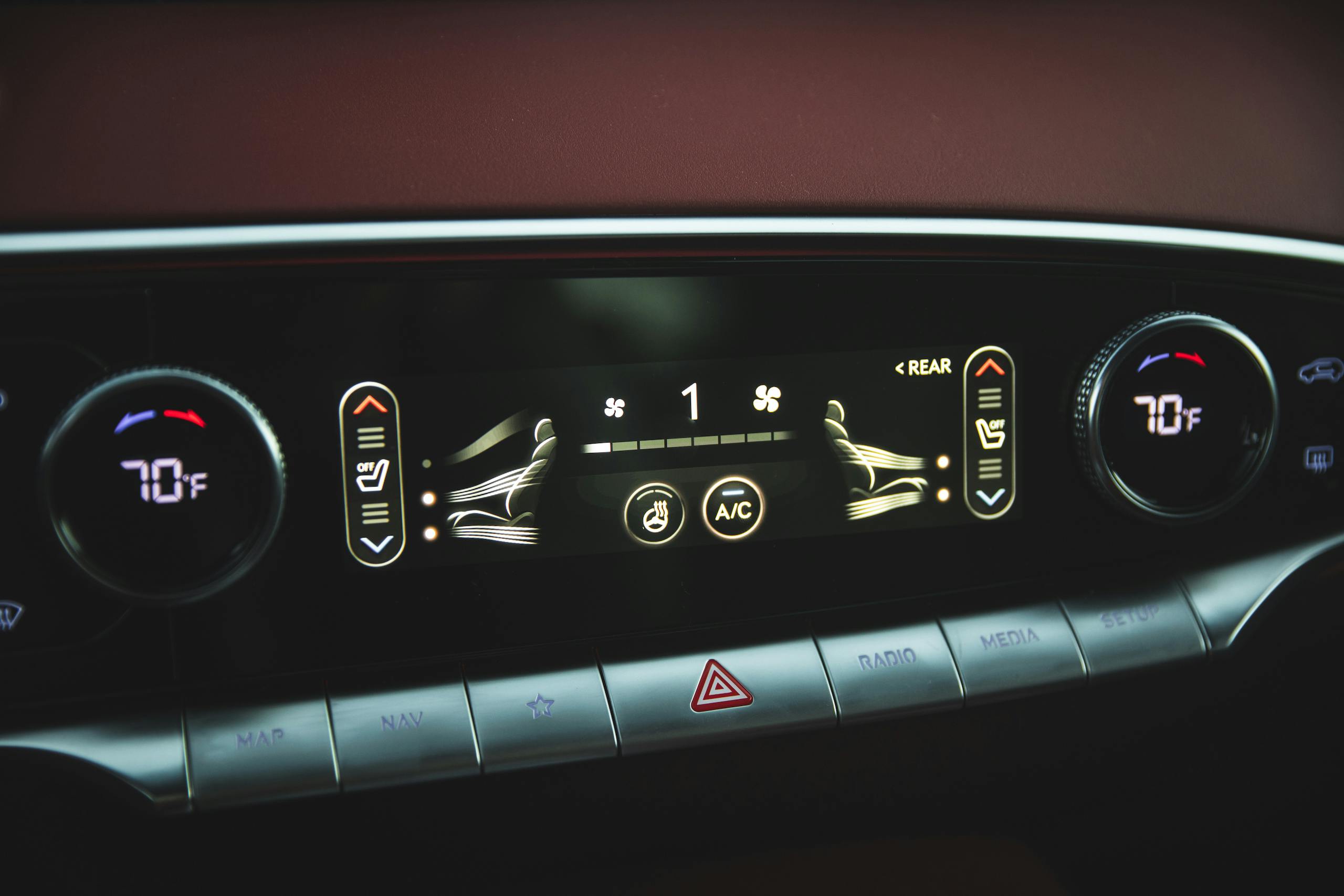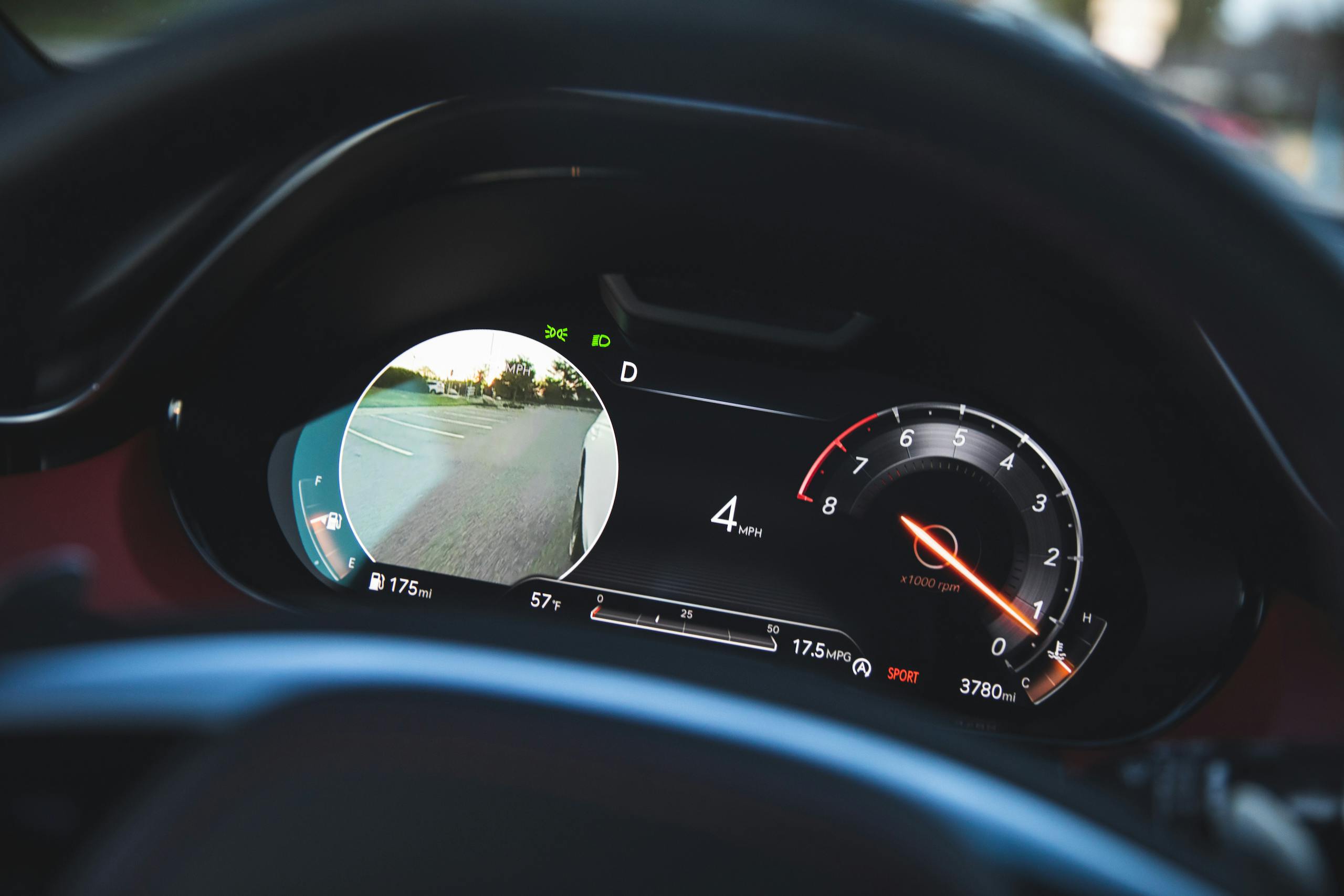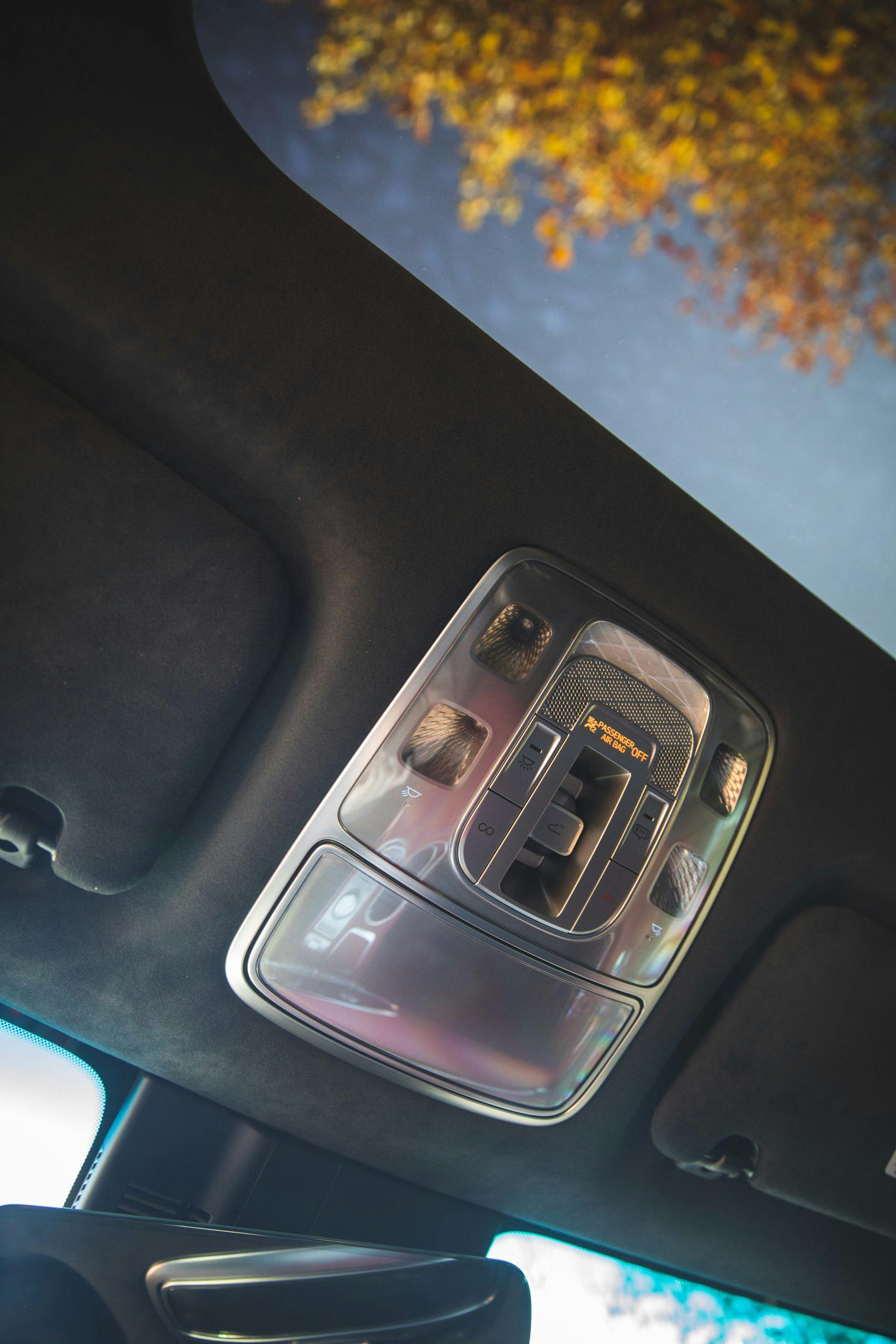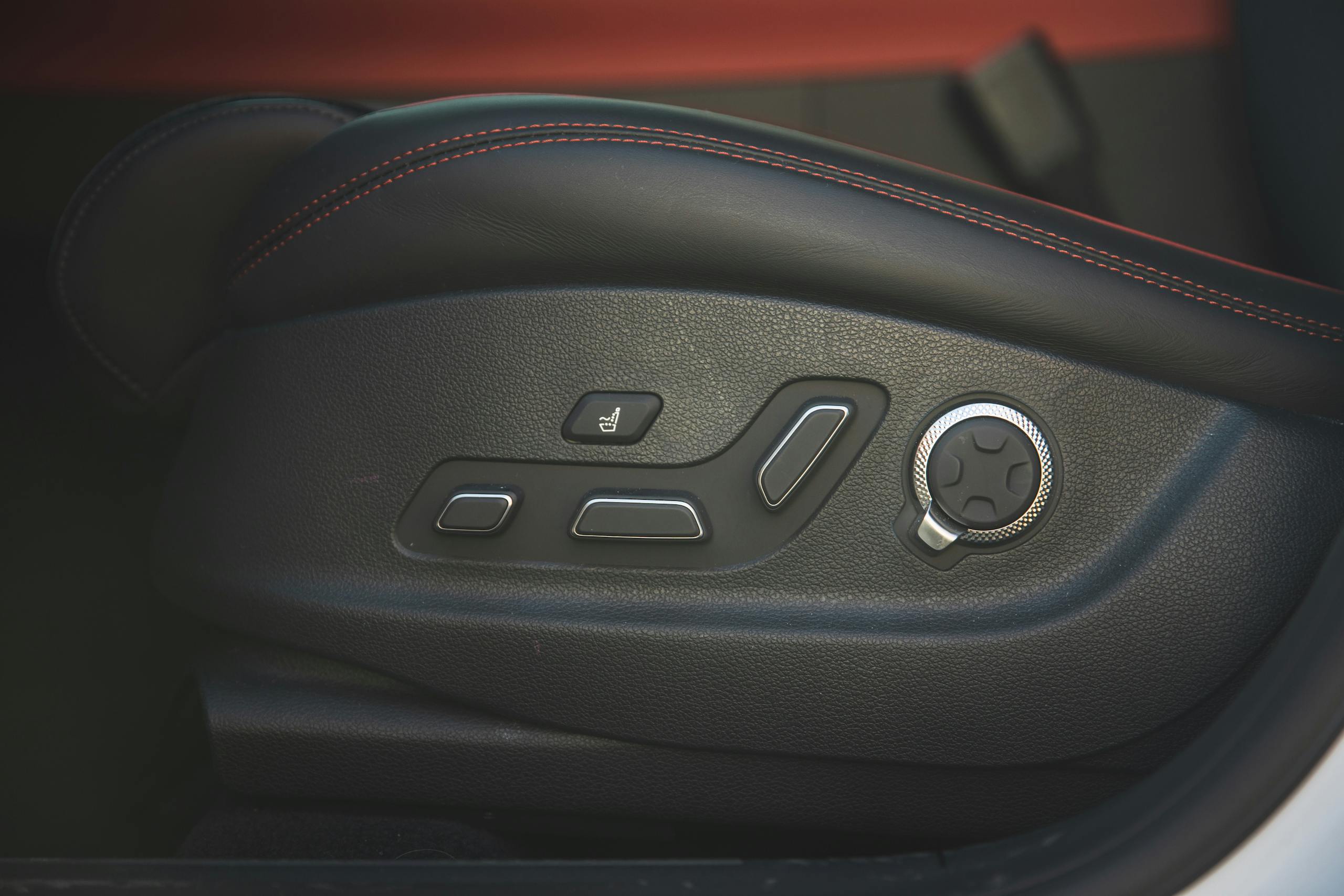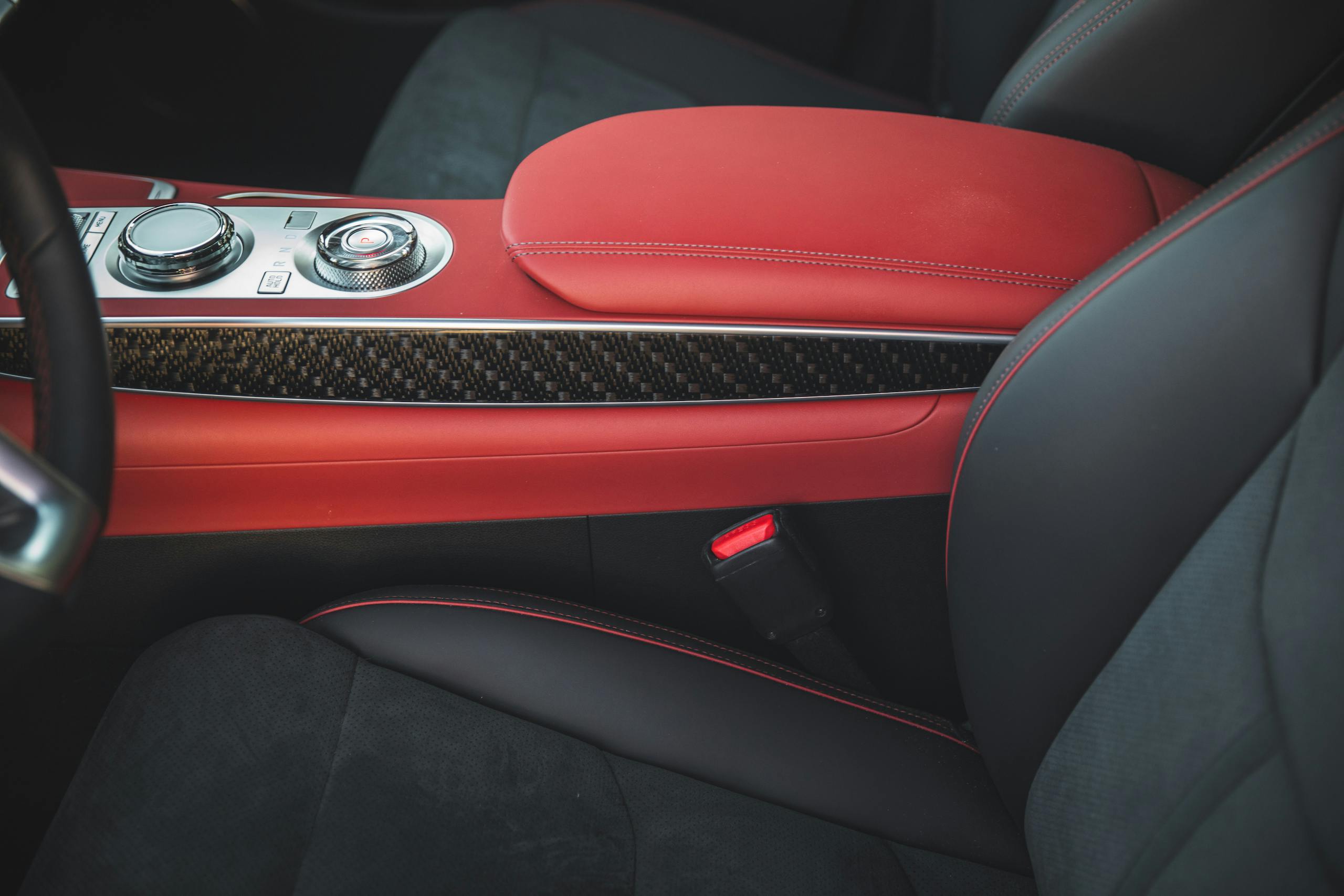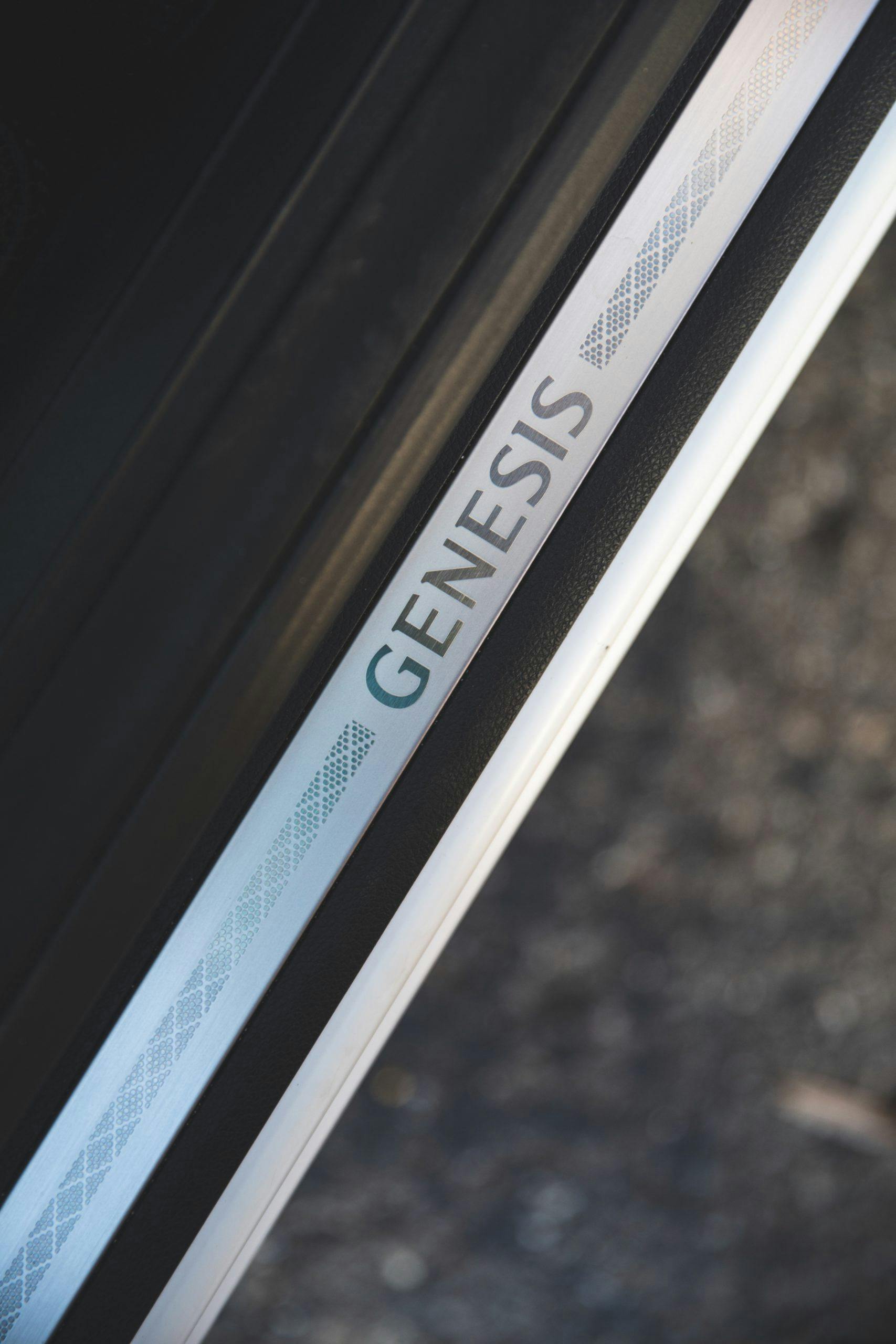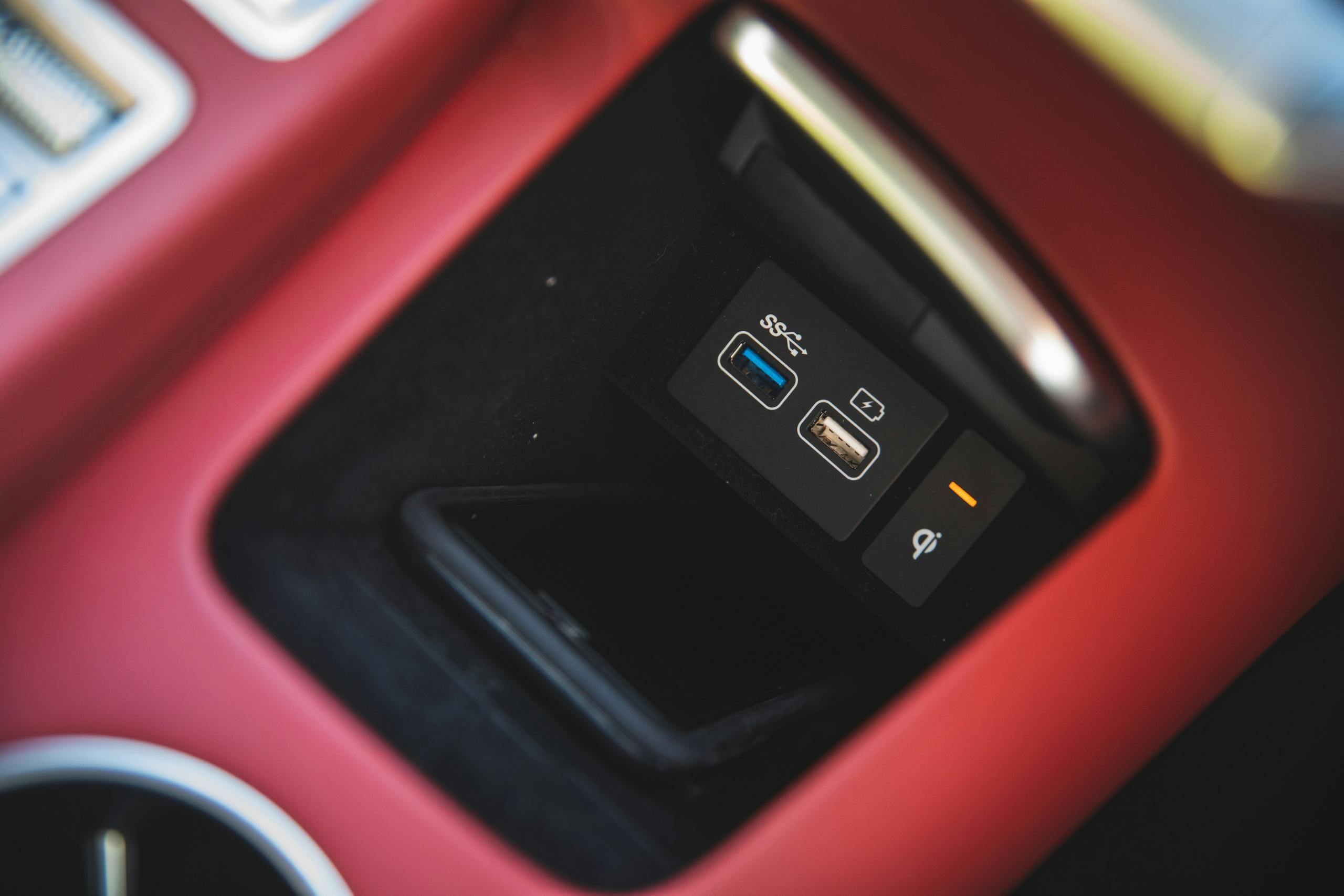Review: 2022 Genesis GV70 AWD 3.5T Sport Prestige
The late Raul Julia was celebrated for his acting, his humanitarian work, and his sterling personal qualities as a father and friend. He won several Tony Awards and brought Shakespeare to new fans across the world. Yet his final role, completed just before his untimely death from cancer, was as “M. Bison” in the generally awful Jean-Claude van Damme videogame-based film Street Fighter. I’ve heard plenty of educated theater fans say that this amounts to an utter tragedy, an insulting end to a great talent. Yet if you actually watch Julia’s part in the film, it’s utterly magic, a portrayal that balances campy humor with flashes of authentic menace. A true joy. Just goes to show: There are no small parts, only small people who play them.
If there is a Street Fighter: The Movie of automotive segments, the “Small Luxury SUV” is surely it. The whole idea boils down to “Cadillac Cimarron, but make it ride badly and lean in the turns.” People buy SUVs and crossovers for space, utility, and a little bit of freeway intimidation, but a $65,000 vehicle with a Honda CR-V’s worth of footprint and considerably less interior space provides none of these things. I have never felt a single moment’s worth of envy while regarding some misguided person’s X3, NX 250, Macan, SQ5, or RDX, and given that I can get worked up about a two-door Ford Fairmont without the Futura package that’s really saying something.

Nevertheless, the GV70 from Genesis brings a Raul Julia’s worth of talent to what is essentially a despicable segment of vehicle, and therefore it deserves some thoughtful attention. Like Julia in Street Fighter, the GV70 is: handsome, witty, and slathered head to toe in red leather. Let’s take a look.
Entries in this segment are typically either repurposed prole-level FWD boxes or lifted entry-luxury sedans; the GV70 is the latter, taking some bones from the subtle Genesis G70 four-door and its Kia Stinger hatchback sibling. The resulting 185-inch wagon has some remarkably adventurous, and largely successful, styling, emphasized by the “Matterhorn” flat-white paint. (It’s a $1500 option, and you shouldn’t consider it unless you truly understand the effort involved in keeping it pristine.) Assuming you can stomach the Bentley-esque design language that first appeared on last year’s G90 full-size sedan before spreading through the range, it’s actually quite a handsome effort, if slightly generic from some angles. Expect that you’ll have to explain what it is to at least a few of your neighbors, a conversation you wouldn’t have to endure with a BMW X3.
Ah, but the X3 owners out there don’t get to experience this interior, which is a true delight. The seats are first-rate and adjustable to a fare-thee-well. Everything you see or touch feels truly valuable and durable, an impression further enhanced by the obsessively complex carbon-fiber trim panels included as part of the $4900 Sport Prestige Package. The vast majority of touch points are actual metal; this goes so far as to include the rotating knob for the rear windshield wiper, a polished-aluminum work of art that would be the nicest single thing in ninety-eight percent of the cars for sale today.
Genesis indulges its techno-fantasies a bit with a massive widescreen display at the top of the center console that can be configured any way you like and defaults to artsy displays reflecting the current weather in the car’s immediate vicinity. Beneath that is a small touchscreen for simple and easy-to-use control of the HVAC system. Almost anyone could understand and operate it immediately with a high degree of satisfaction. Most functions can be managed either via touch or though an iDrive-style metal-edged device on the console just ahead of the knurled aluminum rotary shift knob.
The amount of thought that has gone into this interior must have been staggering to arrange and execute; after five minutes in the GV70 you will profoundly distrust pretty much every other luxury car on the market. This distracts somewhat from the fact that this little Genesis is not particularly spacious, and that goes double for the passengers in the second row. Those of us who live our lives in cheaper cars will recognize this as an HR-V’s worth of space in a CR-V’s worth of crossover. Blame the rear-wheel-drive architecture, and also the fact that the GV70 just isn’t as tall as some of the competition. The Germans would call this a “coupe”, just for the low roof.
On the move, the GV70 is delightfully quiet and the ride is first-rate for a vehicle of this type, particularly given the Dumbo-ear 21-inch wheels on rubber-band tires. Michigan potholes present no particular challenge, even at high speed. As with the Genesis sedans, this is a great place to hear a good stereo, and the Lexicon-branded 16-speaker system is reasonably good, if not up to the standards of what Genesis puts in its bigger sedans. Another minor gripe: This car has a remarkably poor speakerphone system in which there’s not enough volume for the incoming call and not enough clarity for the person listening on the other end.
Part of the essential stupidity of the Mini Luxury SUV is the sporting pretension affected by many of the most prominent entries in the class, and the GV70 is not exempt from this. The steering attempts to make up in stiffness what it has lost in feel, and the same is true for the brakes. That being said, you can make tremendous pace in the GV70, especially in bad weather. Just don’t expect a lot of feedback from the controls. If you want a car that steers and brakes better, Genesis has one sitting right next to this in the showroom, and it’s a sedan with the same basic platform … if not the same engine options.
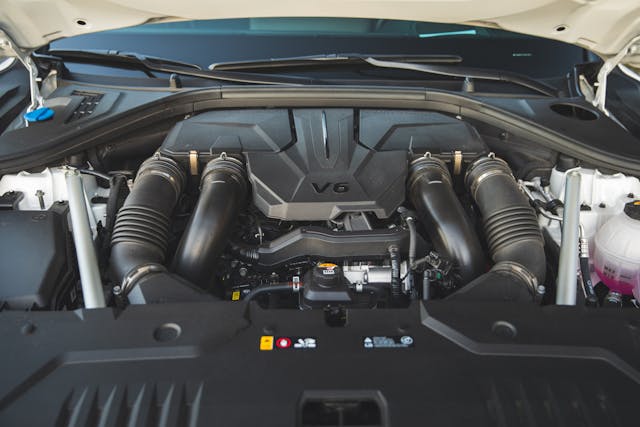
Speaking of: The GV70 and its larger GV80 sibling debut a new 3.5-liter twin-turbo V-6 to replace the 3.3-liter twin-turbo V-6 found in all three of the Genesis sedans. This “Smartstream” engine uses dual direct injection to reduce the carbon buildup associated with early DI gasoline engines. It’s also supposed to get better mileage, although in our hands the GV70 struggled to reach 22 mpg in mixed use. Nor is the power particularly spellbinding. Genesis claims 375 horsepower and 391 pound-feet of torque for this new engine, but their horses must be smaller than the ones placed by Lincoln in my MKT EcoBoost 3.5, because the old Lincoln wagon will tear this Genesis a new taillight in anything resembling a drag race. Don’t buy this car thinking it’s fast, because it isn’t, and the slow-witted transmission doesn’t help matters. Surely, however, it is better than the 300-horse turbo four that comes standard in this model.
It would be unethical to not mention a serious drawback to the Genesis GV70 as we tested it: The lane-following system is utterly terrifying in an Ohio rainstorm, jerking the wheel out of our hands and causing the car to repeatedly suffer 75-mph stability-control interventions on wet pavement. The solution is to turn it off and then remain vigilant for its silent reactivation, which does happen after a while. While it is an effective cure for distracted driving, in the sense that the Code of Hammurabi was an effective cure for petty theft, it’s enough for us to choose a different vehicle unless there’s a good way to keep it disabled, which there probably is. We should further note that most of those systems, in all cars, are seemingly designed for a California freeway and can be dangerous elsewhere.

At $65,045 as tested, the GV70 is perilously close to the bigger, and better-conceived, GV80 sport-utility vehicle. Unless you have a home with a 186-inch-long garage, there’s no reason not to consider the GV80 very seriously as an alternative; it has all the virtues of the GV70, the same engineering, with more space. At the $41,000 base price of the four-cylinder GV70, on the other hand, it’s hard to think of a better choice.
Six-cylinder GV70 models start at $52,600. To that we added $1500 of flat white paint which, as discussed, could probably be skipped by most buyers. Genesis pursues a tightly-wrapped option-package strategy, so the next $9900 comes from just two choices. The “Sport Advanced Package” is $5000; it’s half interior-material upgrades, one-quarter techno-trash like the Remote Smart Parking Assist, and the 16-speaker Lexicon system. Potential buyers could be forgiven for skipping it.
The “Sport Prestige Package” requires that you buy the Advanced before you can drop another $4900 on it. You get a really cool 3-D instrument cluster that cannot be adequately described, just experienced, and that really nice carbon-fiber trim. The rest of the stuff is forgettable: electric limited-slip diff in a baby truck? Twenty-one inch wheels on the same? Manual sun shades?

The ideal GV70 would be a $55,000 car with carbon-fiber interior, a decent sound system, and not much else. At $65,045, it has solid competition from its own relatives—but not from the Germans or the Japanese, neither of whom have quite as solid a handle on what this sort of vehicle should be. Experienced viewers of the Street Fighter film will recall a Raul Julia monologue where he says, “For you, the day Bison graced your village was the most important day of your life—but for me, it was Tuesday.” As the Hyundai chaebol continues to run rampant over the competition everywhere from Elantras to Tellurides and beyond, the competition should expect to have many such moments. For the Audi Q5, BMW X3, and the rest, the arrival of the GV70 is a deadly event—but for Hyundai and its Genesis sub-brand, it’s just Tuesday. Raul Julia would approve.
2022 Genesis GV70 AWD 3.5T Sport Prestige
Base price/as tested: $52,600/$65,045
Pros: The exterior, the interior, most of the other stuff too.
Cons: A powertrain that fails to excite, a lack of interior space, a dim-witted lane-keeping system.
Summary: As noted American entrepreneur Elizabeth Holmes once said about Genesis products from the original sedan to now: “First they laugh at you, then they fight you, then you make the G90 look like a slightly confused Bentley Arnage, then you win.”

